Clearly define the responsibilities of the agency receiving the application
On the afternoon of November 11, speaking at the group on the Draft Law amending and supplementing a number of articles of the Law on Citizen Reception, the Law on Complaints, and the Law on Denunciations, delegate Nguyen Thi Yen (HCMC delegation) said she highly agreed with the drafting committee and the Verification Report of the National Assembly 's Committee for People's Aspirations and Supervision on the necessity of amending the law.
According to the delegate, the current laws related to citizen reception and complaint and denunciation settlement were issued in 2012, 2014 and 2019. In practice, many situations and requirements have arisen that need to be amended and supplemented.
Commenting on the draft amendments, delegate Nguyen Thi Yen said the draft has added online citizen reception in addition to in-person. However, according to her, to create maximum convenience for the people, it is necessary to clearly stipulate the combination of in-person and online forms.
She pointed out that in many cases, the number of citizens wanting to participate in reflecting and complaining is very large, while the conditions for traveling to the citizen reception office are still difficult.
"With the combined model, people can send representatives to the provincial citizen reception point, while other citizens participate via online points in their localities. This method not only reduces travel costs for people but also helps state agencies handle cases more conveniently," she gave an example.

Delegate Nguyen Thi Yen, Ho Chi Minh City delegation (Photo: Nguyen Hang).
Regarding the citizen reception point at the commune level, according to the draft, "the citizen reception location is the People's Committee headquarters or a location decided by the Chairman of the Commune People's Committee. However, delegates said that the regulations need to be defined more clearly.
"The purpose of the merger is to be closer to the people, to solve people's problems quickly and effectively. But if a government level does not have a headquarters to receive citizens, it is not reasonable," she said.
According to the delegate, receiving citizens is an activity that shows respect for the people, so the citizen reception office must be proper and have a clear location.
Regarding digital transformation, Ms. Yen noted that the draft has provisions for building management software, connecting complaints, denunciations and feedback. However, the actual implementation in the past has not been consistent.
The delegate suggested that the software should be connected from the commune level to the province and the central level, and at the same time connected with the National Assembly Delegation, People's Council, Fatherland Front and relevant agencies to avoid duplication of petitions and make it easier to monitor progress. She said that there were places reporting more than 1,000 petitions each year, but upon re-checking, there were duplications between the receiving agencies.
Regarding the handling of complaints and denunciations, delegates requested to clearly define the responsibilities and roles of the agencies receiving the petitions, avoiding the situation of "petitions being transferred up and then transferred down", causing people to have to go back and forth for many years without a final resolution.

According to delegates, many complaints are sent in circles because the responsibilities of the agencies receiving the complaints have not been clearly defined (Illustration: Son Nguyen).
Ms. Yen also suggested adding regulations on preparing content before receiving citizens. According to her, in many cases, officers still receive citizens without understanding the content of the case, which can easily cause frustration for citizens.
"If we don't understand the content of the citizen's complaint or petition, where will we get guidance or forward the petition? If receiving citizens makes them more upset, should we receive them or not?", Ms. Yen said.
Supplementing the time limit and process for handling citizens' feedback and recommendations
Participating in the discussion on the same content, delegate Ha Phuoc Thang (HCMC delegation) said he agreed with the addition of online citizen reception, especially when in reality during the Covid-19 period, this form has been piloted and proven effective.
Delegates suggested that the Government evaluate the overall pilot work in the past time and review the technical infrastructure and data connection capabilities between levels: from the central to the grassroots level to ensure conditions for actual implementation.

Delegate Ha Phuoc Thang, Ho Chi Minh City delegation (Photo: Nguyen Hang).
Second, the delegate proposed to add content on the responsibility of the agency receiving the application in Clause 2, Article 27 of the current Law.
According to him, the new regulations only require responses to complaints and denunciations, but there are no regulations for citizens' reflections and recommendations. Therefore, it is necessary to add the responsibility to notify the results of the handling.
"Within 7 working days, the initial processing results or previous settlement results must be notified. After the settlement is completed, within the next 7 working days, the receiving agency must inform the agency that transferred the application of the results," he proposed.
Third, the delegate emphasized the regulation of time limits and procedures for handling complaints and recommendations in the Law on Citizen Reception. Currently, the Law on Complaints and the Law on Denunciations have specified time limits for each level of handling, but the Law on Citizen Reception has not yet specified the time limits and procedures for complaints and recommendations.
Therefore, he proposed: 30 days for normal cases; 45 days for complicated cases or cases in remote areas.
Delegates said that reflections and recommendations often do not require mandatory dialogue like complaints and denunciations, so the time can be shorter.
Source: https://dantri.com.vn/thoi-su/phan-anh-kien-nghi-cua-cong-dan-7-ngay-phan-hoi-30-45-ngay-giai-quyet-20251111170341177.htm



![[Photo] Prime Minister Pham Minh Chinh receives Lao Minister of Labor and Welfare Phosay Sayasone](https://vphoto.vietnam.vn/thumb/1200x675/vietnam/resource/IMAGE/2025/11/11/1762872028311_dsc-2246-jpg.webp)

![[Photo] Chu Noodles - the essence of rice and sunshine](https://vphoto.vietnam.vn/thumb/1200x675/vietnam/resource/IMAGE/2025/11/11/1762846220477_ndo_tl_7-jpg.webp)


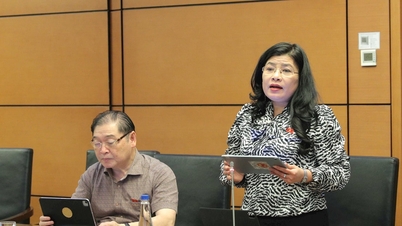








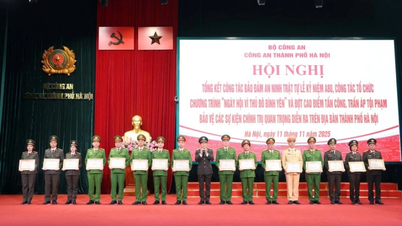












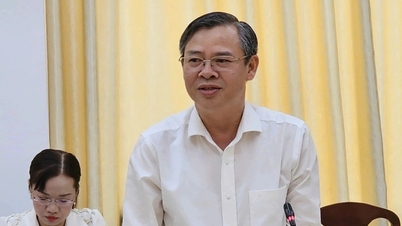























































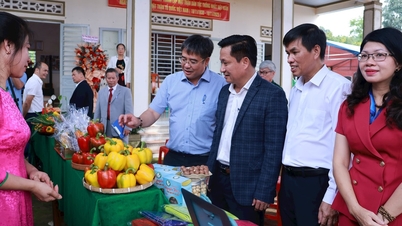
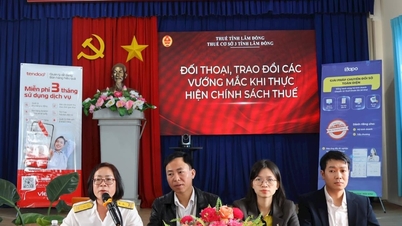
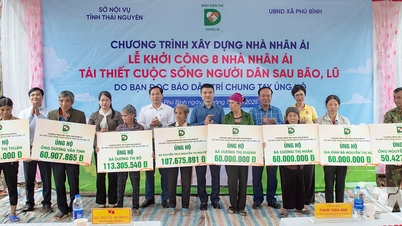








![Dong Nai OCOP transition: [Article 3] Linking tourism with OCOP product consumption](https://vphoto.vietnam.vn/thumb/402x226/vietnam/resource/IMAGE/2025/11/10/1762739199309_1324-2740-7_n-162543_981.jpeg)








Comment (0)